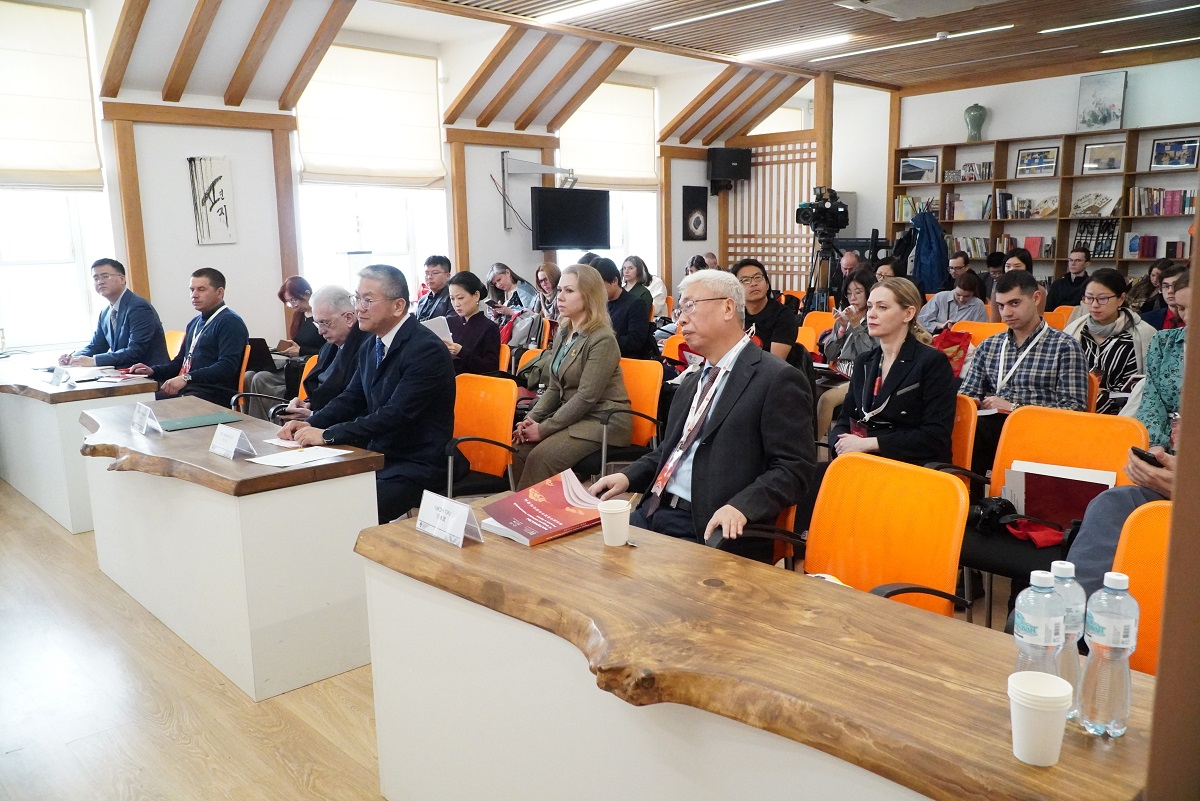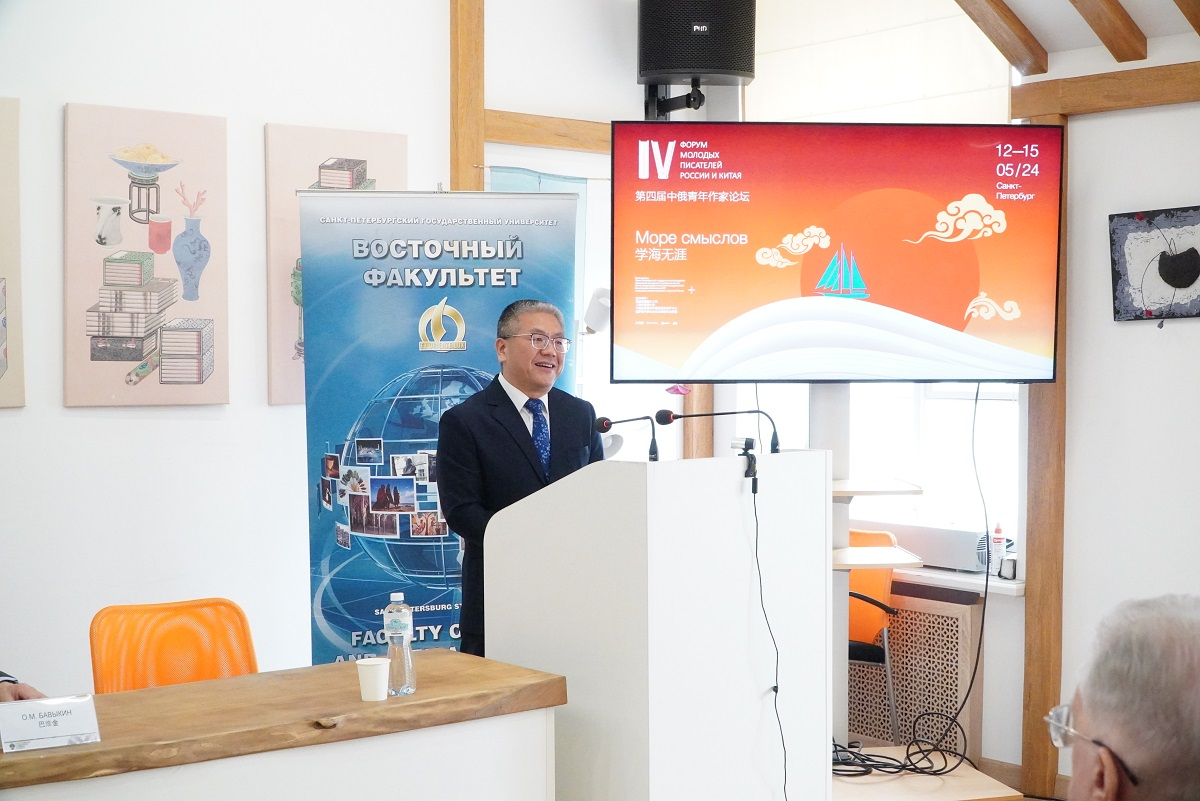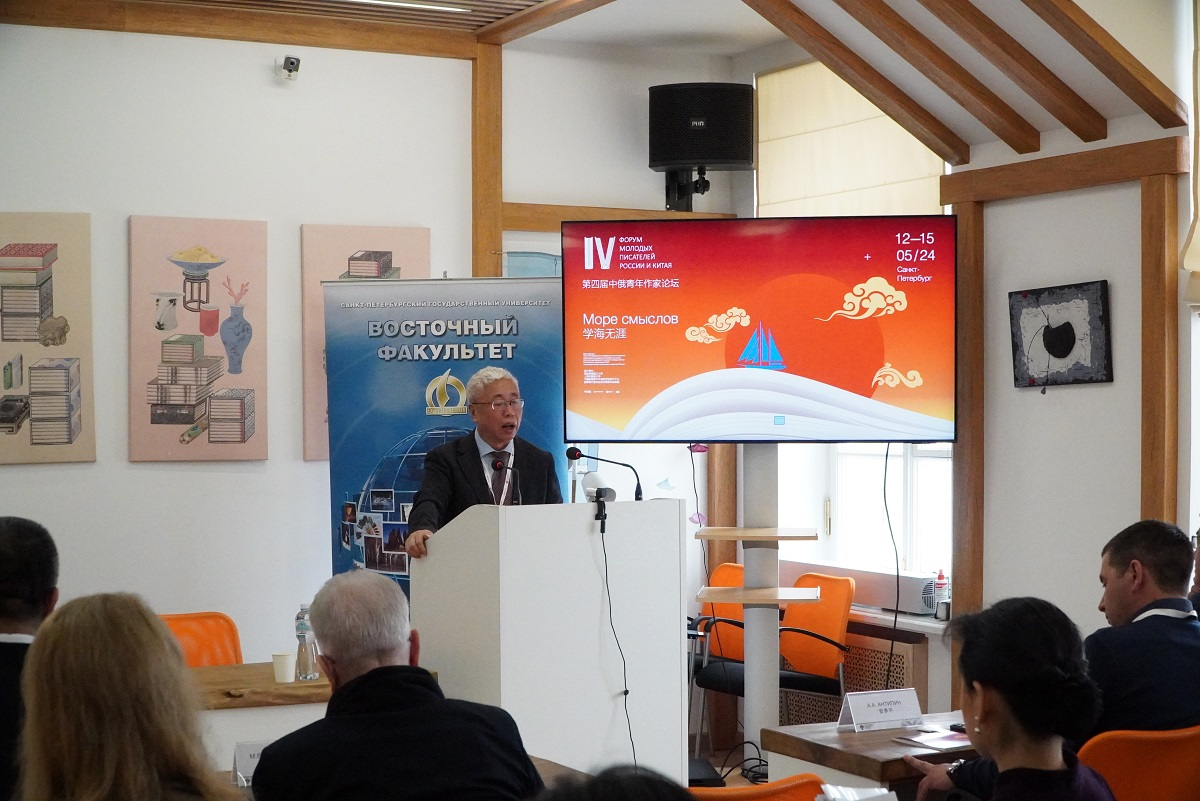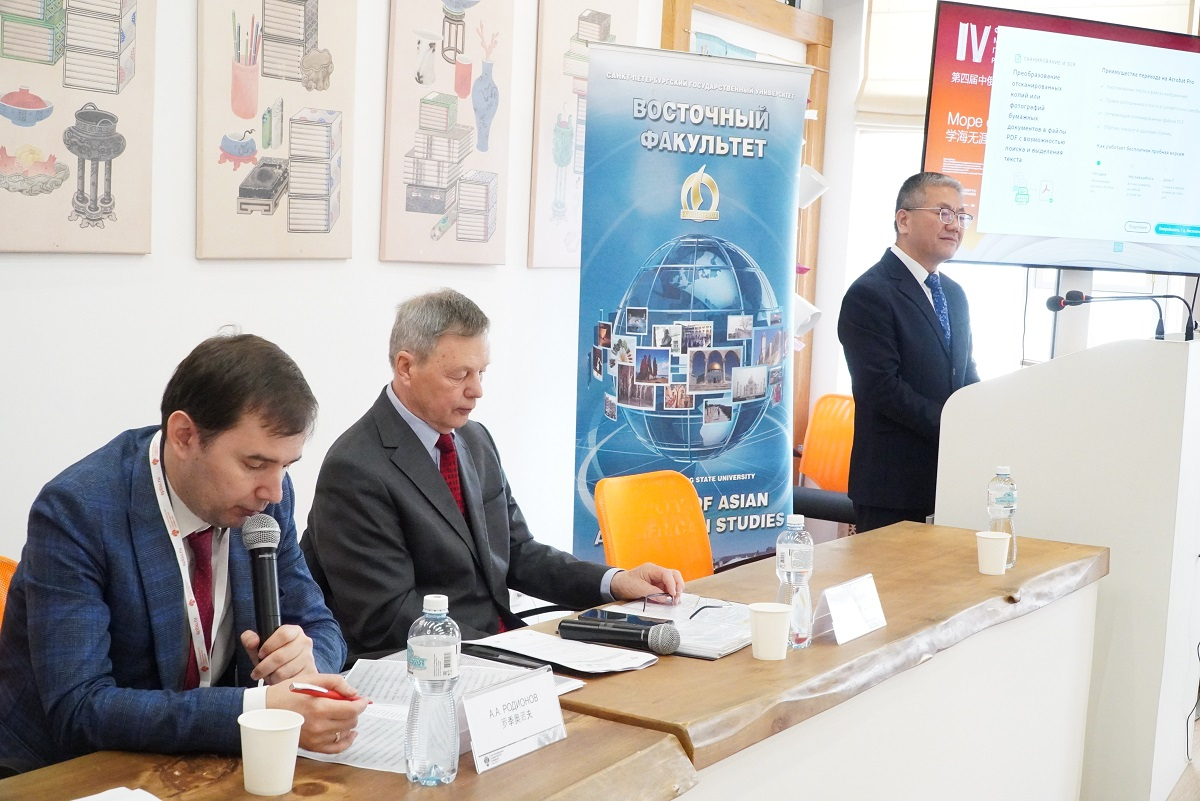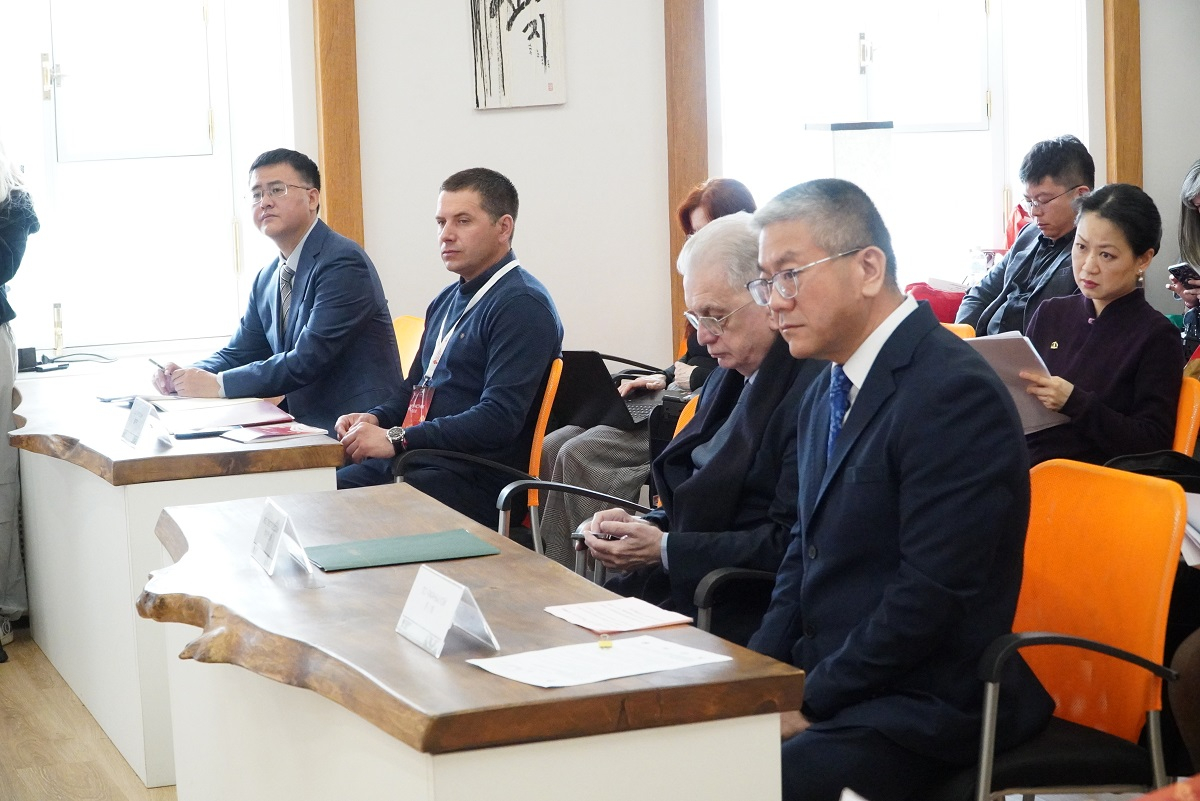"The Sea of Meanings": young writers from Russia and China meet at St Petersburg University
The 4th Forum of Young Writers of Russia and China, held at St Petersburg University, has finished its work.
The forum aimed to establish a dialogue between young writers from the Russian Federation and the People’s Republic of China and introduce Chinese writers to the cultural and spiritual traditions of Russia. Its slogan "The Sea of Meanings" also refers to the host city chosen for the 2024 forum — St Petersburg. As a seaside city, it offers a range of themes and ideas addressed by the event’s participants in their writings.
Previously, the Forum of Young Writers of Russia and China was held in Shanghai (2015 and 2019) and in Moscow (2018).
According to Oleg Bavykin, co-organiser of the event from the Russian side, a graduate of St Petersburg University and representative of the Union of Writers of Russia, the forum has been attended by ‘great writers, albeit young people’. Among them are: Chinese authors from Guangzhou, Leshan, Beijing, Wuhan; and Shanghai; and Russian authors from Barnaul, Bryansk, the Vologda Region, Donetsk, Irkutsk, Nizhny Novgorod, Moscow, and St Petersburg.
We gather authors from different corners of Russia and China — from the heartlands that feed our literature with talents. Over the past decade, the participants in our first forums have already established themselves in contemporary literature. For instance, writer Andrei Antipin received the Valentin Rasputin Literary Award, an important award for Russian literature. Another forum participant, prose writer and critic Andrei Timofeev, became Chairman of the Council of Young Writers at the Union of Writers of Russia.
Oleg Bavykin, member of the Union of Writers of Russia
Academician Mikhail Piotrovsky, Dean of the Faculty of Asian and African Studies at St Petersburg University, welcomed writers and literary translators from Russia and China at the University. He emphasised that St Petersburg has a long traditions of Chinese Studies, and Chinese writers have been frequent guests at the University. Today, translations of Chinese literature into Russian are on the rise. More than half of the academics in the Department of Chinese Philology at St Petersburg University are professionally engaged in literary translation.
No other university’s academic staff — not only nationwide but also worldwide — is doing so much to translate and popularise Chinese literature. And this has been a time-honoured tradition at the Faculty of Asian and African Studies since its foundation 170 years ago. We have been following and carefully developing the translation traditions of our teachers and pass them on to our students. I am confident that the literary ties between our countries will continue to strengthen.
Academician Mikhail Piotrovsky, Dean of the Faculty of Asian and African Studies at St Petersburg University
Thus, Professor Alexander Storozhuk has been translating the complete works of Pú Sōnglíng, a classic of Chinese literature. Associate Professor Oksana Rodionova has been translating novels by: Dōng Xī; Liú Zhèn Yún; Hēi Hè; and Zhāng Xué Dōng. Associate Professor Evgeniia Mitkina is a translator of: Fán Yīpíng; Mài Jiā; and Xiào Jiāng Hóng. A graduate of St Petersburg University Igor Egorov translated into Russian major novels by Nobel Prize-winning author Mò Yán. Associate Professor Dmitrii Maiatskii has been introducing the Russian reader to classic and contemporary Chinese drama. Professor Alexey Rodionov has compiled and edited over the last two decades 35 collections of contemporary Chinese literature.
Greetings to the forum participants were sent by Sergey Shargunov, Head of the Association of Unions of Writers and Publishers of Russia. In his address, he pointed out that close communication between young writers from China and Russia will open doors to new friendships and creative collaborations. Vladimir Tolstoy, Advisor to the President of the Russian Federation, also sent his greetings to the forum participants. He underlined that the best way to get to know another nation is to get to know its literature.
Mr Luó Zhàn Huī, Consul General of the People’s Republic of China in St Petersburg, agreed that literature is a reflection of a nation’s spirit. He said that when seeking the spiritual essence of a nation, one first turns attention to its literature. The distinguished guest also stressed the significance of the host city chosen for this year’s forum.
Over the 300 years since its foundation, St Petersburg University has taught and nurtured many talents, outstanding politicians and writers, and it has a long-standing tradition of cooperation with China. Many prominent people have visited, studied and even received honorary titles here. About 2,700 Chinese citizens are currently studying at St Petersburg University, which is evidence of the popularity of the University among young people in China.
Mr Luó Zhàn Huī, Consul General of the People’s Republic of China in St Petersburg
Professor Zhèng Tǐwǔ, the initiator of the forum on the Chinese side, a prominent scholar of the poetry of Alexander Blok, translator, and Director of the Institute of World Literature at Shanghai International Studies University, has known St Petersburg sinologists of several generations. According to Professor Zhèng Tǐwǔ, this forum has been the only permanent platform for communication between the literati of the two countries.
"Our selection criteria for the forum participants are very strict. We do our best to invite people from every corner of our countries; and the most important requirement is to have original works that can be translated and then published in another country. The young own the future. That is to say, the future of Chinese and Russian literature is in the hands of the participants in this event," said Professor Zhèng Tǐwǔ.
Andrei Antipin, an author born in the Irkutsk Region, was invited to the forum as a mentor. He wished the participants not to lose their creative focus and always remember that literature speaks first and foremost to the hearts of readers. Karina Seidametova, poet and deputy editor-in-chief of the Russian literary magazine "Nash Sovremennik" ("Our Contemporary"), said that the image of the Russian poet Alexander Pushkin unites Russian and Chinese culture.
Before the end of 2024, translations of the forum participants’ literary works are to be published in Russian and Chinese literary magazines.
Chinese writer Fǔ Yuè Huī addressed the participants at the opening of the forum. He reminded about the art of storytelling. The first person who would tell him stories was his grandmother. Among her narratives were jokes, everyday stories and real horror stories, which eventually helped him to better understand and feel at home in the real world.
"Such stories, as we could say, are the earliest form of literature. The warmth and homeliness they bring to people is the emotional comfort that literature makes us to feel. Author Mò Yán’s acceptance speech for the 2012 Nobel Prize in Literature was titled «Storytellers». As a young member of the literary world, I also seek to become a great storyteller," shared writer Fǔ Yuè Huī.
Alexey Rodionov, Professor in the Department of Chinese Philology at St Petersburg University, spoke about the current trends in the Russian book publishing market and the demand for Chinese literature. According to the available data, there is a growing interest in Chinese literature in Russia, and the share of translations of contemporary authors is increasing, in particular due to the support of the Chinese government. Thus, according to the results of 2023, Chinese literature ranks sixth among literary translations published in Russia, and the novel "The Blessing of the Heavenly Ones" by Mò Xiāng Tóng Xiù reached No 1 on the bestseller list in the Russian fiction book market.
The popularity of Chinese authors has not been yet as high as they deserve. Their books have to break through the sea of market restrictions and prejudices and fight for the reader’s interest. Nonetheless, the market dynamics for Chinese literature is positive; and currently, it is occupying a new position in the Russian bookselling market.
Alexey Rodionov, Professor in the Department of Chinese Philology at St Petersburg University
The forum programme featured thematic sessions, during which contemporary writers from the two countries discussed relevant issues. One of the sessions was led by Andrei Astvatsaturov, a well-known St Petersburg writer and Professor in the Department of the History of Foreign Literature at St Petersburg University. Young writers were invited to discuss: cultural, social and technological challenges of contemporary literature; issues in literary translation; and mutual perception of Russian and Chinese literatures.
Sadig Mamedov, a young poet from Irkutsk, who earned combat awards for participation in the Special Military Operation, delivered a talk themed "Poet and War". His talk elicited a strong emotional response from the forum participants.
To arms the squad sprang in a flash.
To arms! The gunner is targeting the weapon...
If only just one text:
"I’m still alive, Mom. I’m in one piece."
Sadig Mamedov
The young writers also took part in a poetry evening at the Centre for Contemporary Literature and Books, visited the Vladimir Nabokov Museum of St Petersburg University, the Fyodor Dostoevsky Museum, and the State Hermitage Museum.
The 4th Forum of Young Writers of Russia and China was co-organised by: St Petersburg University; Shanghai International Studies University; the Association of Unions of Writers and Publishers of Russia; the Centre for International Language Cooperation of the Ministry of Education of the People’s Republic of China; and the Russian-Chinese Friendship Society.


